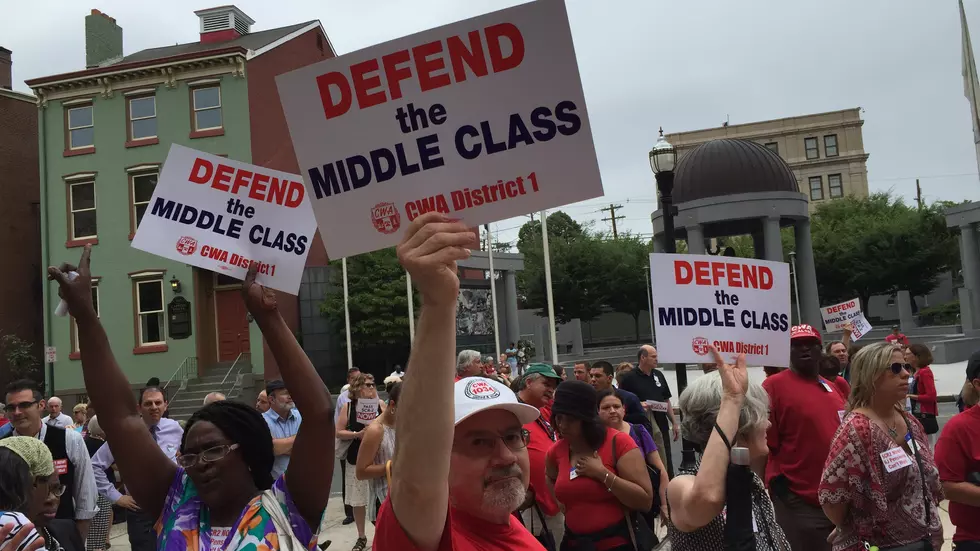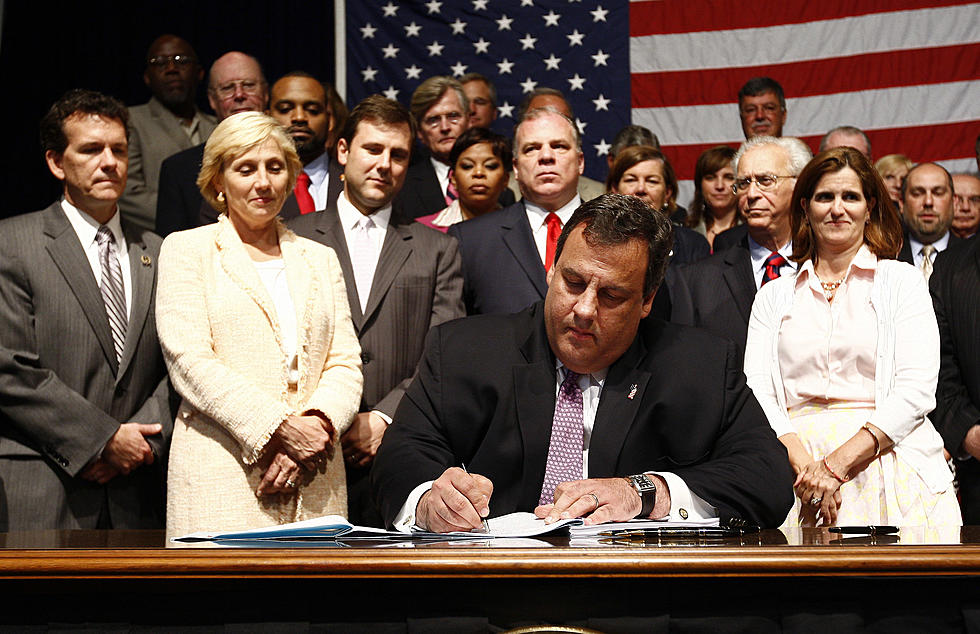
Unions defend judge’s ruling in New Jersey pension lawsuit
Unions for New Jersey public workers said in a court filing that Gov. Chris Christie's administration was wrong to suggest a judge "fabricated" a right to full pension contributions.
The argument came in a filing Monday with the state Supreme Court, which is weighing whether to uphold a lower court's ruling ordering the governor and Legislature to put more money toward contributions this year.
In an earlier brief, Christie's lawyers accused the judge of creating a constitutional right to annual pension contributions.
Unions including the New Jersey Education Association and the Communications Workers of America said in the filing that pensions are deferred payments to workers for services already rendered. They argued that it was the state that created an obligation to make the payment in the future by not paying enough in the past.
Also Monday, the Democrat-controlled state Legislature and the boards of the state's pension funds filed briefs asking the Supreme Court to side with the unions and require the full pension contributions for this year.
The issue is one of the largest home-front political battles for Christie, who is considering seeking the Republican presidential nomination next year. It also looms over state budget decisions; there's no disagreement that making the full payment would mean painful budget cuts.
For decades, governors of both parties have skipped or skimped on contributions to public worker retirement funds. In 2011, Christie agreed to an overhaul of the system in one of his signature accomplishments as governor. The deal called for workers to contribute more, for cost-of-living increases to be suspended and for the state to make up for past underfunding over seven years of escalating payments.
When state tax revenue came in lower than expected last year, Christie balanced the budget by reducing the payments. He did the same for the current budget, and is proposing to do the same in the fiscal year that starts July 1.
Unions have sued over all three decisions. For 2014, a judge ruled that the reductions were permissible because it was an emergency. For the current budget, a judge ruled the state must make the full payment -- nearly $1.6 billion more than it plans to. The state and unions are also in court separately over the planned 2016 contribution; Christie wants to contribute $1.3 billion -- less than half the roughly $3 billion called for in the 2011 agreement.
© 2014 The Associated Press. All rights reserved. This material may not be published, broadcast, rewritten or redistributed. Learn more about our Privacy Policy and Terms of Use.
More From New Jersey 101.5 FM









